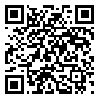Volume 32, Issue 2 (Spring 2024)
Avicenna J Nurs Midwifery Care 2024, 32(2): 98-106 |
Back to browse issues page
Ethics code: CHS-REC-08172020
Download citation:
BibTeX | RIS | EndNote | Medlars | ProCite | Reference Manager | RefWorks
Send citation to:



BibTeX | RIS | EndNote | Medlars | ProCite | Reference Manager | RefWorks
Send citation to:
Hayudini R I, Pangandaman H K. Factors and Preferences in Modes of Delivery among Pregnant Tausug Women in Jolo, Sulu. Avicenna J Nurs Midwifery Care 2024; 32 (2) :98-106
URL: http://nmj.umsha.ac.ir/article-1-2731-en.html
URL: http://nmj.umsha.ac.ir/article-1-2731-en.html
1- Mindanao State University, Sulu Campus, Jolo Sulu, Philippines , raniza.hayudini@msusulu.edu.ph
2- Mindanao State University, Marawi, Lanao Del Sur, Philippines
2- Mindanao State University, Marawi, Lanao Del Sur, Philippines
Abstract: (3719 Views)
Background and Objective: Childbirth is a momentous event in a woman's existence, symbolizing the culmination of the reproductive process and the initiation of the maternal role.
To describe and correlate the characteristics of pregnant Tausug women, factors affecting their childbirth, and the preferred methods of childbirth delivery.
Materials and Methods: A descriptive-correlational study was conducted on Tausug pregnant women in Jolo, Sulu (n=120), who were selected using stratified simple random sampling guided by a criterion. A valid and reliable three-part instrument was completed by the participants face-to-face and online mode after ensuring informed consent and ethics approval. The collected data were analyzed using frequency distribution, mean, standard deviation, Cramer's V, and Pearson's r at 0.05 level of significance.
Results: It was found that parents and relatives, decision-making autonomy, cultural and religious beliefs, transportation, proximity to the hospital, and financial capabilities all affect childbirth decisions (WM=3.17). Tausug mothers choose vaginal delivery because of cultural beliefs, personal experiences, and family and partner preferences (WM=3.73). The number of births (r=0.41; P=0.01) and factors affecting childbirth delivery (r=0.35; P=0.05) had a significant relationship with the preferred methods of childbirth delivery.
Conclusion: Mothers' preferred delivery method and factors affecting childbirth are crucial for ensuring the health and meeting the high-quality healthcare requirements of mothers during the delivery process. Healthcare providers should be aware of the cultural and religious beliefs that may influence childbirth decisions.
To describe and correlate the characteristics of pregnant Tausug women, factors affecting their childbirth, and the preferred methods of childbirth delivery.
Materials and Methods: A descriptive-correlational study was conducted on Tausug pregnant women in Jolo, Sulu (n=120), who were selected using stratified simple random sampling guided by a criterion. A valid and reliable three-part instrument was completed by the participants face-to-face and online mode after ensuring informed consent and ethics approval. The collected data were analyzed using frequency distribution, mean, standard deviation, Cramer's V, and Pearson's r at 0.05 level of significance.
Results: It was found that parents and relatives, decision-making autonomy, cultural and religious beliefs, transportation, proximity to the hospital, and financial capabilities all affect childbirth decisions (WM=3.17). Tausug mothers choose vaginal delivery because of cultural beliefs, personal experiences, and family and partner preferences (WM=3.73). The number of births (r=0.41; P=0.01) and factors affecting childbirth delivery (r=0.35; P=0.05) had a significant relationship with the preferred methods of childbirth delivery.
Conclusion: Mothers' preferred delivery method and factors affecting childbirth are crucial for ensuring the health and meeting the high-quality healthcare requirements of mothers during the delivery process. Healthcare providers should be aware of the cultural and religious beliefs that may influence childbirth decisions.
Type of Study: Original Research |
Subject:
Nursing
Received: 2023/07/3 | Accepted: 2023/08/22 | Published: 2024/06/15
Received: 2023/07/3 | Accepted: 2023/08/22 | Published: 2024/06/15
Send email to the article author
| Rights and permissions | |
 |
This work is licensed under a Creative Commons Attribution-NonCommercial 4.0 International License. |







 gmail.com
gmail.com